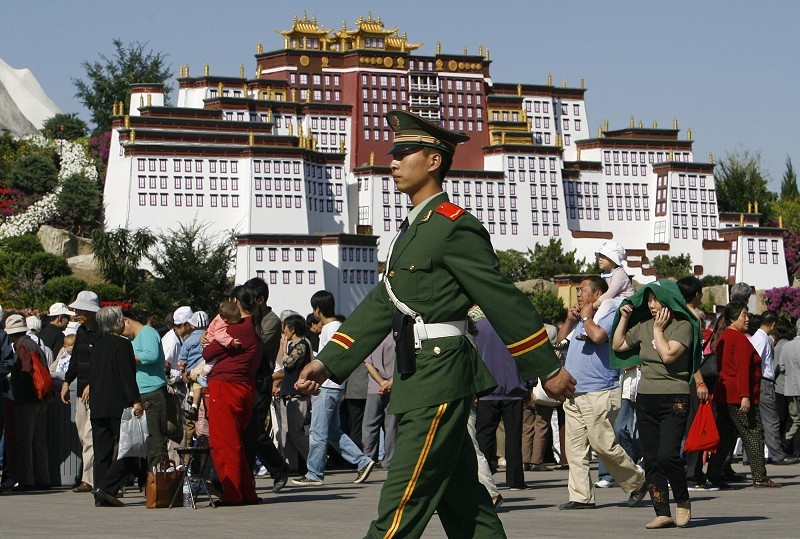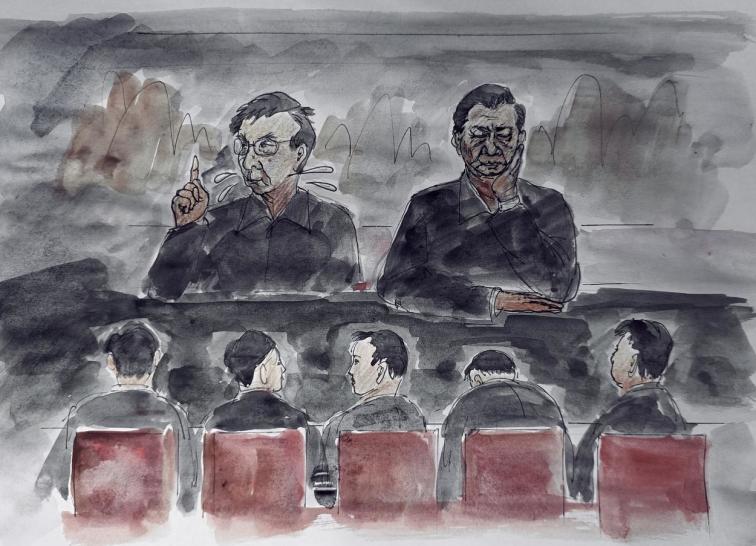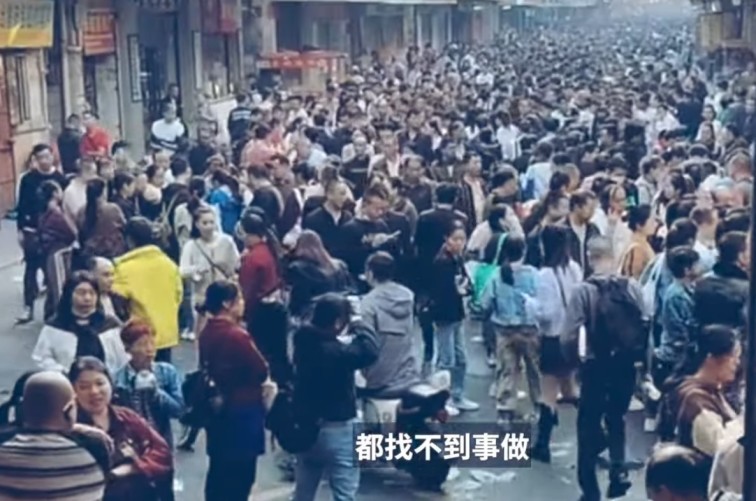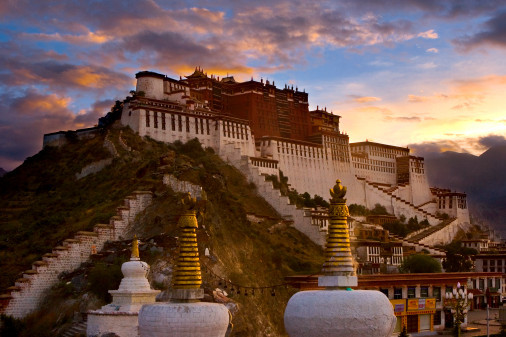Police officers in front of the Potala Palace. (People News)
[People News] Yesterday, in my article “Xi Jinping, Who Reportedly Suffered a Stroke, Going to Tibet Is Very Odd”, I mentioned that Xi Jinping led a central delegation to Tibet to attend the 60th anniversary celebration, and that there were three oddities. First, according to the practice of the past twenty years, the highest-ranking leader the CCP sends to attend such a meeting is the Chairman of the Chinese People’s Political Consultative Conference (CPPCC). Xi himself did not have to attend this type of event—unless someone wanted to make him do so.
Second, according to state media reports, Xi Jinping led the central delegation to the activities, but the head of the delegation was actually CCP Politburo Standing Committee member and CPPCC Chairman Wang Huning. The Party boss became just an ordinary delegate—was this meant to convey Xi’s real status inside the CCP?
Third, Tibet is a high-altitude region with thin air, which easily induces or worsens cardiovascular and cerebrovascular strain. Since news spread after the CCP’s Third Plenum last July that Xi had suffered a stroke, his health has been poor. In this situation, was it really voluntary for him to travel to Tibet? Was he disregarding the consequences? Or was the one who went actually a double?
In addition to the above oddities, after reviewing state media reports on August 21, I discovered another five peculiarities.
First, Vice Chairman of the Central Military Commission (CMC) Zhang Youxia did not accompany Xi; instead, it was CMC member Zhang Shengmin who went. If, according to the official narrative, this celebration was of unprecedented high specification, then the military’s top leader—meaning the CMC Vice Chairman—should have been there alongside Xi, who state media still calls CMC Chairman. Since Xi’s protégé He Weidong disappeared after the Two Sessions earlier this year (rumoured to have been arrested), Zhang Youxia should logically have gone, just as he accompanied Xi to Tibet in July 2021.
Yet Zhang Youxia blatantly did not accompany Xi this time, showing a striking disregard for Xi’s authority and apparently without fear of repercussions. What does this imply? The excuse that he was occupied preparing for the upcoming parade is unconvincing, since accompanying the CMC Chairman carries greater political weight. The only plausible explanation is that the widespread rumor of Xi losing control over the military is not unfounded—by now, Xi and Zhang Youxia are already like water and fire.
Second, despite his poor health, Xi travelled to the Tibetan plateau for such an important event, yet on the 21st, he only attended the conference to deliver a commemorative plaque, while Wang Huning gave the speech. Was Xi there merely as a prop? In past comparable cases, Xi would attend and personally deliver a speech to underline his position. Was it because his health made him unfit to speak, or because the person present was a stand-in? Was it really necessary for Xi to risk his health merely to show up?
Third, Xi has always been extremely concerned about his personal security, yet on this Tibet trip, he allowed thousands of people to greet him at the airport, with even more lining the route, and attended a rally at Potala Palace Square with 20,000 participants. Compared with the smaller crowds during his 2021 Tibet trip, this time the scale was clearly larger. Although the CCP imposed martial law in Lhasa, how could it guarantee no incidents in such a crowd? Has Xi’s personal security suddenly become less important?
Fourth, in his speech, Wang Huning did not say he was representing several CCP institutions. Instead, he said: “The CCP Central Committee, the Standing Committee of the National People’s Congress, the State Council, the CPPCC, and the Central Military Commission extend warm congratulations to the Tibet Autonomous Region.” But back in 2015, Yu Zhengsheng said: “On behalf of the CCP Central Committee, the Standing Committee of the National People’s Congress, the State Council, the CPPCC, and the Central Military Commission, I extend warm congratulations and cordial greetings to the cadres and masses of all ethnic groups in Tibet.” Likewise in 2005, Jia Qinglin used the same formula. Why is Wang Huning now unable to “represent” those bodies? Did the CMC refuse to authorise it?
Fifth, whether in Wang Huning’s speech or in the joint congratulatory message from the CCP Central Committee, NPC, State Council, CPPCC, and CMC, while “Xi Jinping Thought,” “Xi as the Core,” and loyalty slogans like the “2442” formula were mentioned, the repeated emphasis was that “the Party” is the real leadership core. This is markedly different from Yu Zhengsheng and Jia Qinglin’s speeches in the past. In my view, the stress on “the Party” aims to downplay Xi’s role as the “core.” Why is that?
In addition to these five peculiarities, I also noticed that the just-published Issue No. 7 of PLA Pictorial still did not feature a large photo of Xi on its cover. In my earlier article “Xi Taken Off the Military Magazine Cover Again After July Last Year”, I already analysed this as further evidence that Xi has lost command of the military.
Although from the state media’s recent high-profile coverage, Xi’s position seems secure, the small details reveal that within the CCP, there is a deliberate effort to conceal the reality that in the lead-up to the early-September military parade and the October Fourth Plenum, they are creating a façade for the outside world.
(First published in People News) △











News magazine bootstrap themes!
I like this themes, fast loading and look profesional
Thank you Carlos!
You're welcome!
Please support me with give positive rating!
Yes Sure!